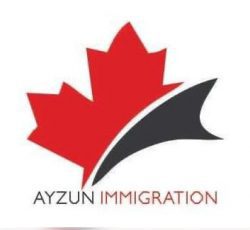Humanitarian And Compassionate Considerations
Humanitarian And Compassionate Considerations
When you submit an application with Humanitarian and Compassionate considerations, you are asking for special consideration to be given with respect to your application. These considerations are often requested when people do not meet certain criteria to have their application processed and without this consideration, could face refusal. Humanitarian and Compassionate Considerations are attached to an application and reflect on your unique and current situation while asking the officer to consider this when rendering your decision.H & C Applications
As per the Regulation, an Immigration Officer making a decision on a matter in certain circumstances has the right to use their discretion to “bend the rules” to accommodate certain requests. This does not mean applicants have the right or ability to undercut the immigration system, it means that officers are able to consider certain extenuating factors when making decisions on applications. The most common request with Humanitarian and Compassionate considerations is for Permanent Residence within Canada. Typically, you must apply for Permanent Residence from outside Canada, however, you may request special consideration in this regard if you feel you would face undue hardship should you be forced to exit Canada.Qualifying for Humanitarian and Compassionate Consideration
As mentioned, Humanitarian and Compassionate considerations are not meant to undercut the Canadian Immigration System but instead, offer a solution to those who have no other options. In order to qualify, you:- Are a foreign national currently in Canada;
- Need an exemption to one or more requirements to allow you to apply for Permanent Residence;
- Will experience undue and disproportionate hardship should you be forced to exit Canada; and
- Do not qualify under the family class, live-in caregiver category, protected person or refugee, or Temporary Resident Permit holder.
Factors that May Be Considered
Examples of the factors that may be considered include, but are not limited to:- Establishment in Canada for example owning or renting a property
- An inability to leave Canada has led to the establishment, for example, working or giving birth in Canada
- Ties to Canada
- Best interests of any children affected by your application
- Health considerations
- Family violence considerations Consequences of your separation from relative
- Factors in your country of origin, any hardships you might face
- Any other relevant factors you wish to have considered that are not related to seeking protection.
Best interests of the child
The best interests of any children directly affected by the decision made on your application will be taken into consideration as well. Immigration Officers must take into consideration in the assessment of your application. Factors related to the best interests of the child may include but are not limited to the:- Age of the child,
- Child’s establishment in Canada,
- Conditions in the country of origin that could impact the child,
- Medical needs of the child,
- Child’s education, or child’s gender.
Demonstrating Considerations
As the applicant, you are responsible for making sure that all circumstances and factors that you wish to have considered are provided in your application. You will need to demonstrate the various reasons you are requesting an example including any hardships you may face. This includes the hardships you will face should you not receive the exemption you are requesting. These hardships need to be considered disproportionate, unusual, or undeserving. For example, if you are claiming hardship arising from circumstances in your home country, hence why you have remained in Canada, your supporting documents may include:- The hardship you anticipate,
- Whether the hardship would be faced in all areas of the country or specifically where you would reside,
- Whether you ever sought assistance from the authorities, including police or non-governmental organizations, to change or improve your situation in your country, and
- If you have not sought assistance from within your country, you must provide reasons why you have not done so.
What You Will Need
The focus of Humanitarian and Compassionate arguments typically involves making strong arguments that attest to your ties to Canada. If you have centralized a way of life in Canada, legally or otherwise, you are entitled to request that you be allowed to remain in Canada. For example, if you came to Canada on a visitor visa and remained in Canada for years after, centralizing a way of life in Canada and developing strong ties to the country, you can request that your application for Permanent Residence be processed on these merits and the hardship you might face should you be forced to exit CanadaHow We Can Help
The first thing we will need to do is assess the unique merits of your situation. We will need to understand your situation and outline a catered list of documents that would demonstrate why you might qualify for Humanitarian and Compassionate considerations. The most important aspect of such applications is demonstrating that you have centralized a way of life in Canada and that to remove you from the country would cause you an undue and disproportionate amount of hardship. This could also involve assessing the situation in your home country and how that might affect you should you be forced to exit Canada.We will assist you:
- Draft the necessary forms;
- Draft appropriate supporting documentation demonstrating your skills, education, experience, ties to Canada, and how you have centralized your way of life in Canada.
- Demonstrate that you are well suited for Permanent Residence in Canada;
- Demonstrate the undue hardship you would have to suffer if you were not allowed into Canada;
- Compile the strongest possible case as per your unique situation;
- Prepare you for your for any interview should one be requested;
- Follow up with Citizenship and Immigration Canada on your matter to ensure the fastest possible processing time; and
- Of course, be with you every step of the way.

